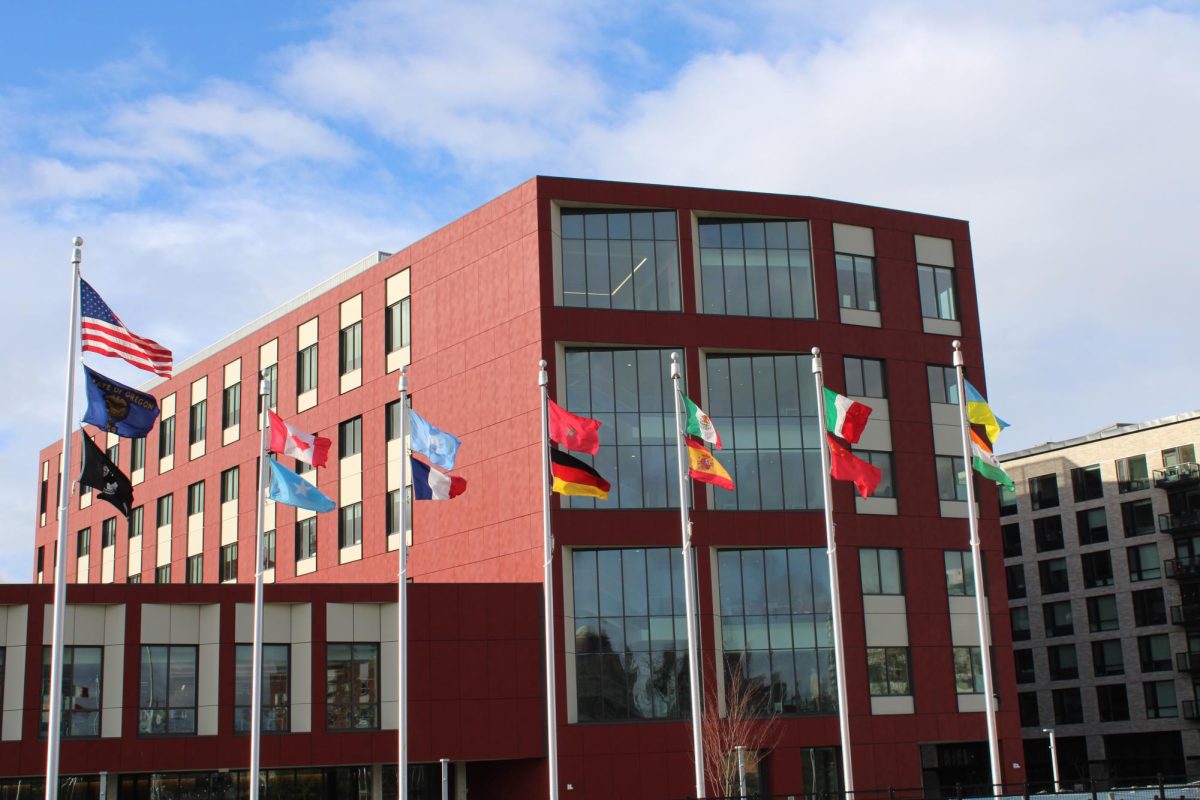Portland Public Schools (PPS) students must take a foreign language for at least two consecutive years to graduate, though many choose to take four years. Current Lincoln students can take Spanish, Arabic, German, French or Mandarin. Principal Peyton Chapman serves as a supervisor for Lincoln’s language department.
“I think that by the end of four years, [a Lincoln student] should at least have intermediate to advanced proficiency,” said Chapman.
Junior Fraser Barnes believes otherwise. He is currently taking IB French SL 7-8.
“The teachers overload us with information,” said Barnes, “giving us barely enough time to verbally practice [the language] in a stress-free environment, so we learn a language but never feel confident enough to use it.”
We believe four years of a foreign language class at Lincoln is insufficient to become conversationally proficient.
Senior Lauren Fin is an avid language learner, currently taking IB Spanish HL 9-10, IB German HL 9-10 and Arabic 1-2.
“I remember my first two years of Spanish were entirely in English, and the only time we’d speak Spanish was if we were learning a phrase. Everything else was English, which I thought was interesting because they wanted to give us all this vocabulary, then have us start speaking the language,” said Fin.
In a 2018 study, Pew Research Center found that only 20% of American students take a foreign language class, compared to 92% of European students. Moreover, European students begin learning a foreign language between the ages of six and nine. The American Academy of Arts and Science reports that school children in the United States will typically start in middle or high school.
The Massachusetts Institute of Technology found in a 2018 study that it is nearly impossible to reach the proficiency of a native speaker unless foreign language education begins before fourth grade. A stronger way for students to gain proficiency is a language immersion program, where students begin taking 50 to 90 percent of their classes in a language other than English, starting in kindergarten.
Senior Luke Northrup has been in Spanish immersion since kindergarten and is currently taking IB Lengua Y Literatura 11-12.
“It’s super easy to acquire a language when a bunch of people are speaking it to you,” said Northrup.
PPS offers five immersion programs beginning in kindergarten: Chinese, Japanese, Russian, Spanish and Vietnamese. However, students must enter their names into a lottery, as the programs have a limited number of spots.
According to U.S. News, students in immersion programs perform academically better in their other classes than students not in immersion programs, especially in reading. Immersion programs are an excellent way for students to learn a foreign language at a young age. Due to their scarcity in PPS, most students aren’t able to participate in immersion programs, meaning that if the goal is for students to become conversationally proficient in a foreign language by high school graduation, PPS schools must find a different way to teach it at a younger age.
Andrew Duggan has taught German at Lincoln since 1998. He previously taught English in Germany. Duggan had several ideas about changes that he believes would help students become more proficient.
“It’d be great if students had a greater variety of languages to learn at an earlier age,” said Duggan. “[In a] perfect world, a third grader can learn Mandarin or German or some language that we don’t teach [at Lincoln].”
Starting foreign language classes early is vital in becoming conversationally proficient by graduation, Ruqaiya Jarad, Lincoln’s Arabic teacher, agrees.
“I think starting at an early age will be amazing. The younger you are, the easier [you] grasp [language]. When you learn a different language, your perspective for a lot of things will change. The dynamic of your brain will be different when you are speaking two languages,” she said.
As of Feb. 5, 2024, Lincoln High School was unable to provide The Cardinal Times with the statistics for how many Lincoln students take four years of a language class and how many Lincoln students enter the school with language credits from their middle school.

